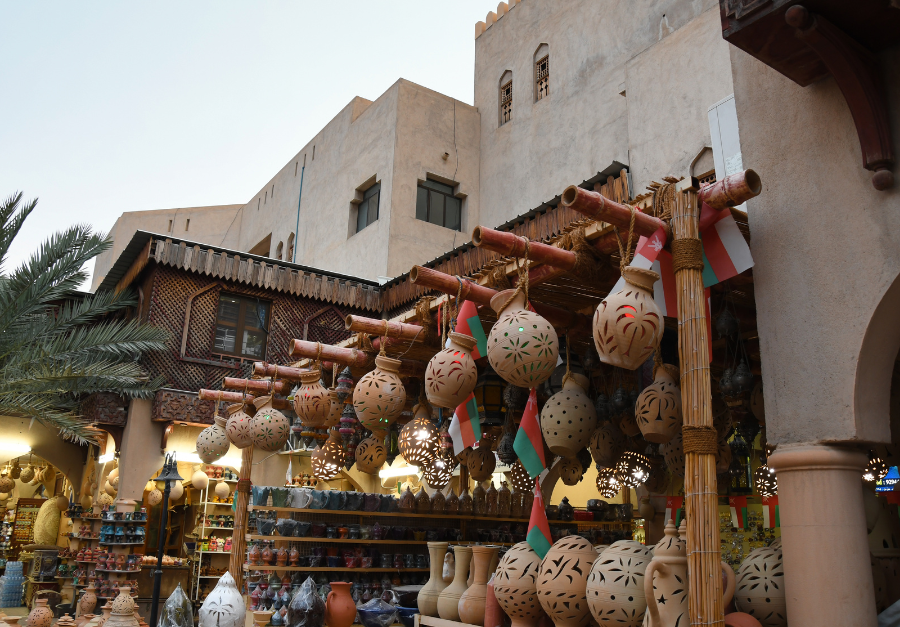Navigating Oman's Foreign Capital Investment Landscape.
In this blog, you will learn more about Local Partnership in Oman and Prohibited Activities for Foreign Investors.
While setting up a business in Oman, there are two options of business setup for a foreign investor. They can either register the business as 100% foreign owned business or as a joint venture known as Local Corporate Equity Partnership. And of course there are certain businesses that are prohibited for foreign investors.
Let’s dive into the requirements to have local partner in Oman.
Businesses that typically require an Omani local partner for foreign companies in Oman include but are not limited to:
- Retail Trade in certain sectors.
- Construction and Engineering Services
- Consulting and Professional Services
- Tourism and Hospitality
- Information Technology and Telecommunications (retail)
- Healthcare and Pharmaceutical Services
- Manufacturing and Industrial Operations

In Oman, there are two types of local sponsorship available for businesses: individual sponsorship and corporate sponsorship.
Individual Sponsorship: Individual sponsorship involves partnering with an Omani national who holds a 35% share in the company. This sponsor must be at least 21 years old and possess specific qualifications and experience related to the business field. They can either be fully employed or receive an annual fee in exchange for granting full power of attorney and control over business operations, without necessarily sharing in profits according to their ownership percentage.
Corporate Sponsorship: On the other hand, corporate sponsorship offers stronger legal protection and allows the foreign party to maintain full control over the business and its financial benefits. This type of sponsorship provides international businesses, regardless of size and entrepreneurs with greater security, especially regarding ownership and succession planning. With corporate sponsorship, the risks associated with individual sponsors, such as the possibility of interference due to retirement or death, can be more effectively managed.
Prohibited Activities for Foreign Investors:
- Ownership of Real Estate: Foreign investors are generally restricted from owning land and property in certain areas, especially those deemed strategic or sensitive. While there are provisions for leasehold rights in designated areas, outright ownership is limited to Omani nationals and GCC citizens in some cases.
- Media and Publishing: The media sector in Oman is tightly regulated, with restrictions on foreign ownership of newspapers, magazines, and radio or television stations. Any involvement in media-related activities requires approval from the relevant authorities and often necessitates local partnerships.
- Retail of Certain Goods: The retail sector, particularly the sale of certain goods like pharmaceuticals, requires majority ownership by Omani nationals. Foreign investors looking to enter this space often need to establish partnerships with local entities to comply with regulations.
- Transportation Services: Certain transportation services, such as taxi and public bus operations, are reserved exclusively for Omani nationals. Foreign investors interested in transportation-related businesses need to explore alternative avenues or partnership arrangements.
- Fisheries and Agriculture: While foreign investment in the fisheries and agriculture sectors is permitted, there are limitations on land ownership and commercial fishing activities. Priority is given to Omani nationals to ensure food security and sustainability in these critical sectors.
Businesses Solely Allocated to Omanis:
- Traditional Crafts and Handicrafts: Businesses engaged in traditional crafts and handicrafts, such as pottery, weaving, and traditional jewelry making, are typically reserved for Omani nationals to preserve cultural heritage and support local artisans.
- Small-Scale Retail: Small-scale retail businesses, including grocery stores, convenience stores, and local markets, are often reserved for Omani nationals to promote entrepreneurship and provide economic opportunities at the grassroots level.

3. Personal and Household Services: Certain service-oriented businesses catering to personal and household needs, such as domestic cleaning services, laundry services, and small-scale repair services, are predominantly operated by Omani nationals.
4. Ownership of Land and Property: While foreign investors may lease land for commercial purposes in designated areas, outright ownership of land and property is generally restricted to Omani nationals and GCC citizens to maintain control over valuable resources.
5. Tourist Guides and Services: Businesses offering tourist guide services and related tourism activities often require majority ownership by Omani nationals to promote local expertise and cultural immersion for visitors.
Navigating these restrictions and understanding the business landscape in Oman is essential for foreign investors looking to establish a presence in the country. Partnering with local entities and seeking guidance from legal and business experts like Bondoni can help navigate regulatory challenges and ensure compliance with local laws. While certain sectors may pose limitations, Oman remains an attractive destination for investment, offering opportunities for growth and collaboration across various industries.
